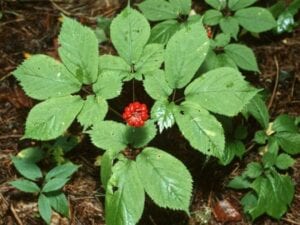 Researchers at Georgia State University’s new Institute for Biomedical Sciences have found that Ginseng can help treat and prevent influenza and respiratory syncytial virus (RSV), a respiratory virus that infects the lungs and breathing passages.
Researchers at Georgia State University’s new Institute for Biomedical Sciences have found that Ginseng can help treat and prevent influenza and respiratory syncytial virus (RSV), a respiratory virus that infects the lungs and breathing passages.
Lead GSU scientist Sang-Moo Kang partnered with researchers in South Korea to study how ginseng can be used to improve health and protect against disease. Ginseng has been reported to have anticancer, anti-inflammatory and immune modifying abilities.
In one study, Kang investigated whether red ginseng extract has preventive effects on influenza A virus infection. He found that red ginseng extract improves the survival of human lung epithelial cells infected with influenza virus. Also, treatment with red ginseng extract reduced the expression of genes that cause inflammation.
After infection with influenza A virus, mice that were orally administered ginseng over a long time showed multiple immune modifying effects, such as stimulated antiviral production of proteins important in immune response and fewer inflammatory cells in their bronchial walls. The study indicates the beneficial effects of red ginseng extract on preventing influenza A virus infections could result from immune modifying capabilities of ginseng.
In his upcoming publication in the International Journal of Molecular Medicine, Kang investigated whether Korean red ginseng extract has antiviral effects, or the ability to treat RSV infection. Kang found Korean red ginseng extract improved the survival of human lung epithelial cells against RSV infection and inhibited the virus from replicating in the body. In addition, treatment with Korean red ginseng extract suppressed the expression of RSV-induced inflammatory genes and the formation of chemically reactive molecules containing oxygen, which play a role in virus-induced epithelial damage in RSV.
Also, mice that were orally administered Korean red ginseng extract had lower viral levels after infection with RSV. The results suggest that Korean red ginseng extract has antiviral activity against RSV infection.
There are currently no approved vaccines available for RSV, which affects millions and is the leading cause of inflammatory bronchiolitis pneumonia and viral death in infants and in some elderly adults.

